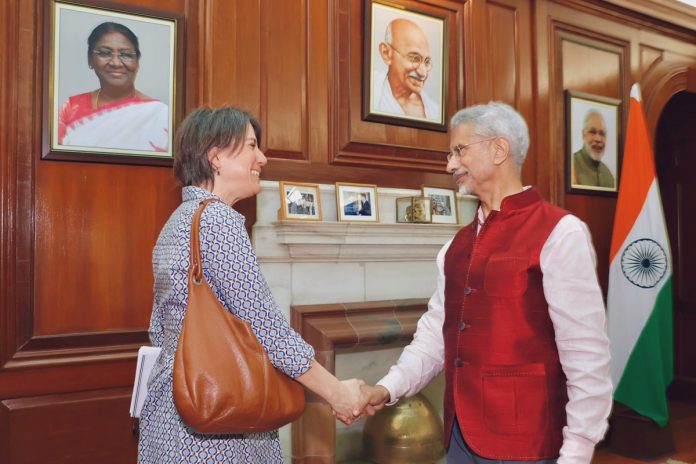New Delhi: During an interactive session in Pune regarding his book “Why Bharat Matters,” External Affairs Minister S Jaishankar emphasized the imperative of swift action in the face of terrorist threats, citing the November 2008 Mumbai attacks as a sobering example. He underscored the necessity of a proactive response to such incidents, asserting that failure to act could embolden terrorists and pave the way for further attacks.
Jaishankar rejected the notion that terrorists should enjoy impunity simply because they operate from across borders, emphasizing the need for a robust and unrestricted approach to counterterrorism, given the disregard for conventional rules exhibited by terrorist groups.
In response to a question regarding India’s most challenging diplomatic relationships, Jaishankar candidly identified Pakistan as a significant hurdle. He acknowledged the complexities of maintaining relations with India’s neighbor, describing it as a formidable task.
Jaishankar urged for a reassessment of India’s stance on its relationship with Pakistan, emphasizing that internal factors have contributed to the challenges faced. He suggested that had India taken an unequivocal stand against Pakistan’s support for terrorism early on, the dynamics of the relationship might have been more favorable.
Jaishankar elaborated on the historical context of India’s struggle against terrorism, tracing it back to the events surrounding the partition in 1947. He highlighted the early instances of terrorism, such as the attacks on Kashmir by Pakistani forces and tribesmen, which aimed to destabilize the region.
Despite India’s military intervention to quell the violence and integrate Kashmir, Jaishankar lamented that the terminology used then failed to recognize it as terrorism, instead referring to the invaders as tribal forces. He stressed the importance of unequivocally denouncing terrorism in all its forms and rejecting any attempts to justify it for political gains.
Regarding India’s foreign policy continuity, Jaishankar noted a balance between consistency and change, particularly emphasizing a shift in approach towards terrorism. He cited the aftermath of the 2008 Mumbai attacks as a pivotal moment when there was unanimous support for a robust response.
He criticized past administrations for engaging in prolonged discussions rather than taking decisive action, asserting that the cost of not confronting terrorism far outweighs any perceived benefits of avoidance.

